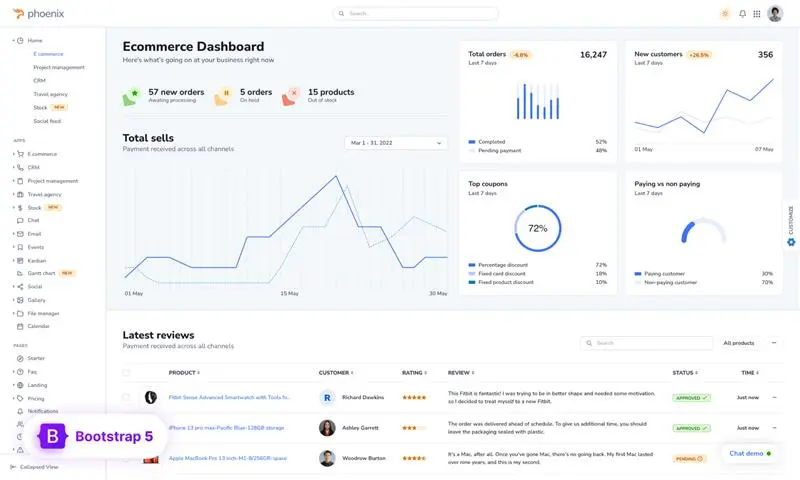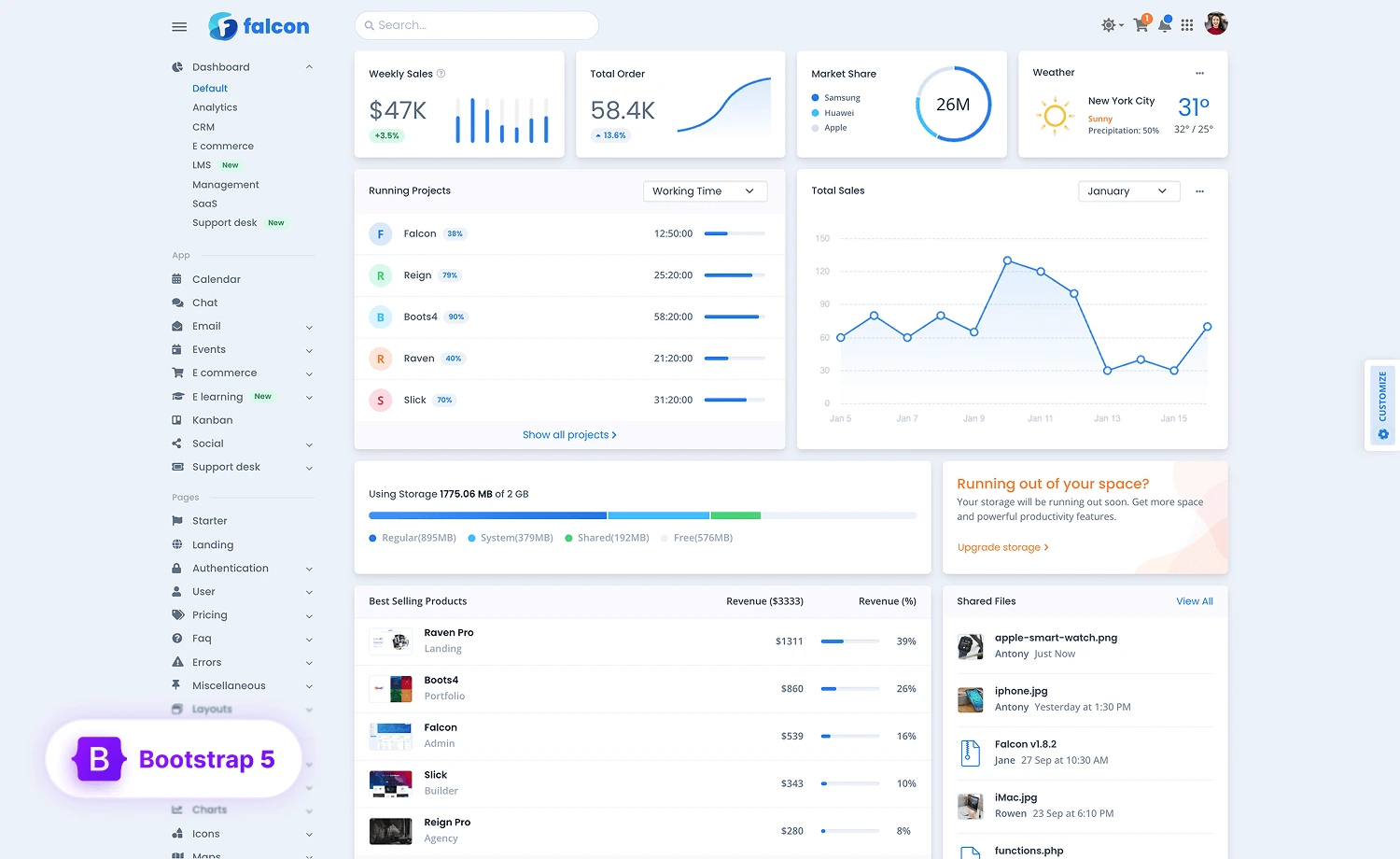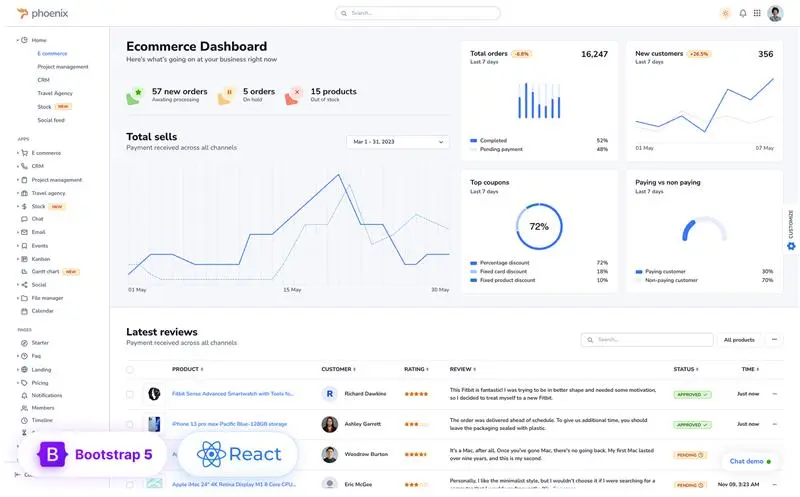The digital eCommerce market appears to be growing continuously, attracting new industry players all around the world. In 2022, eCommerce sales surpassed $1 trillion, setting a new record, as reported in Comscore’s 2023 State of Digital Commerce Report, marking a 21% increase compared to the previous year. [source]
One of the main challenges why businesses struggle to increase their revenue is the lack of security measures. They often lead to fraud or data breaches, which can result in damaged reputation and the loss of customers. When it comes to small eCommerce businesses, this can mean bankruptcy.
And let’s not forget poor user experience, bad service quality, or unreliable customer support that can tarnish a brand’s reputation. To succeed, eCommerce businesses must carefully address these issues and adapt to the dynamic nature of the online market. In this article, we explain how to achieve this goal and boost eCommerce revenue with customer verification.
What is Customer Identity Verification?
Customer identity verification involves confirming a person’s true identity to detect potential imposters and their illicit activities. They typically include crimes like identity theft, using stolen credit cards, making fraudulent disputes, etc. When it comes to eCommerce in particular, this process relies on personal details like phone numbers or addresses to authenticate shoppers, utilizing data from various sources like banks and building societies for verification.
Behavioral customer data, including IP addresses and device information, is also used to verify existing customers’ identities, such as when they access their accounts from new devices or locations, triggering extra identity verification checks. Merchants do that to prevent fraudsters from accessing their platform. That’s why shoppers often confirm their identity by entering a security code sent to a verified email or mobile device.
Additionally, identity verification is crucial when customers open accounts, make high-value purchases, or attempt to buy age-restricted services, like gambling sites or products like alcohol. That’s why not having proper identity verification services on your eCommerce website means that you’re going on a fine line between saving up and losing everything you own. Especially now, with the increasing scope and complexity of eCommerce fraud, which poses a daunting challenge for organizations.
Why is Identity Verification Important in eCommerce?
It’s no secret that the eCommerce sector remains a prime target for fraudsters, with a rising trend of fraudulent activities involving false or stolen identities. This is exactly why identity verification is important. According to Juniper Research, last year, losses from online payment fraud in the eCommerce sector amounted to $41 million. What’s worse is that the projected global cost of eCommerce fraud for merchants this year is set to surpass $48 billion. [Source]
People often fear that their data will be stolen online, particularly when using eCommerce sites, due to the very real and widespread threats to online security. These concerns are based on two main reasons:
- There’s a payment information vulnerability: eCommerce sites require users to input sensitive payment information, such as credit card details. Users worry that these platforms might not have robust security measures in place, potentially exposing their financial data to cybercriminals. Instances of data breaches erode trust and leave consumers anxious about their data’s safety.
- There’s a risk of identity theft and privacy breaches: eCommerce platforms collect extensive personal information, including addresses, phone numbers, and email information. If these sites do not adequately safeguard this data, it can fall into the wrong hands, leading to identity theft, unauthorized account access, or even targeted phishing attacks.
These things considered, customer identity verification is a crucial weapon in the battle against fraud and cybercrime. It empowers eCommerce businesses to identify and detect fraudsters while providing a seamless experience that customers expect when conducting online or mobile app transactions.
Using Identity Verification to Increase eCommerce Business Revenue
Below, we’ll explore the key ways to use identity verification to enhance security, elevate the shopping experience for your customers, and drive revenue growth.
1. For Decreasing Cart Abandonment Rates
When consumers shop on an eCommerce website, ideally, they want a swift and seamless checkout process. Cart abandonment, where customers add items to their virtual carts but abandon their purchases, poses a frequent and costly challenge for merchants.
The latest estimates from the Baymard Institute show that shopping cart abandonment rates can reach as high as 80% for online transactions on mobile devices [source]. One significant contributor to this issue is the extended time required for verification procedures. However, merchants can employ a robust, fully automated ID verification solution and streamline, mitigating cart abandonment and improving the overall shopping experience.
2. For Preventing Negative Reviews and Chargebacks
Verified identities mean that customers can be held accountable for their actions and reviews. In cases of abusive or unjustified negative reviews, eCommerce platforms can identify the responsible parties and take appropriate action. Knowing that they can be held accountable for their reviews discourages customers from posting malicious or unfounded negative feedback. What’s important is that we also see situations where fraudulent orders are made using stolen credit cards or identity details.
In such cases, businesses not only have to reimburse both the bank and the affected customer but also face substantial fines from the banks due to the absence of customer verification protocols. To mitigate these risks, investing in an effective online ID verification measure is crucial for businesses. It reduces chargebacks, thereby averting unwarranted fines. If a chargeback is initiated, the eCommerce platform can provide evidence of the verification process, making it more challenging for the cardholder to dispute the charge successfully. As a result, you avoid the financial loss associated with chargebacks.
3. For Avoiding Subscription Abuse
Let’s say an eCommerce subscription service is offering access to exclusive content or products for a monthly fee. In this scenario, identity verification is crucial for preventing subscription abuse and chargebacks. Without proper verification, a user can subscribe using a valid credit card, access the content for a month, and then initiate a chargeback, claiming the subscription was unauthorized.
By implementing identity verification measures, such as confirming the user’s identity through their payment information and requiring them to create an account with a valid email address and phone number, eCommerce businesses can establish a stronger connection between the user and their subscription. If a chargeback is attempted, the site can provide evidence of the user’s identity and subscription agreement, making it much more challenging for the user to dispute the charge successfully. This reduces the risk of revenue loss.
4. For Enabling a Quicker Checkout Experience
Many eCommerce websites offer the option to create user accounts, which can store payment and shipping information for faster checkouts. Digital identity verification automates this process to make it a frictionless experience for the end user. That means with identity verification, your customers can sign up quickly by confirming their identity.
So, instead of relying solely on passwords, eCommerce platforms can implement multi-factor authentication (MFA) methods like biometrics (e.g., fingerprint or facial recognition) or one-time passwords (OTP). These MFA methods make it easier for users to confirm their identity during checkout quickly and securely, without the hassle of remembering and typing in complex passwords. This eliminates the need for users to enter extensive personal information manually.
5. For Enhancing Users’ Trust and Safety
Trust is the cornerstone of eCommerce, and when customers trust a platform, they are more likely to return, make larger purchases, and recommend it to others, thus boosting revenue. Thankfully, we have identity verification that can help you enable better transparency and accountability in transactions. When buyers and sellers are confident in the identities of their counterparts, they are more likely to engage in honest and fair transactions.
Ensuring customers’ trust and building their safety comes from having a robust fraud prevention system powered by identity verification. Ultimately, ID verification solutions help detect and prevent all sorts of fraud types, including account takeovers, where fraudsters gain unauthorized access to legitimate user accounts. Identity verification helps recognize unusual login patterns or suspicious IP addresses, prompting additional verification steps or account locking when necessary.
So, it’s safe to say that as eCommerce platforms foster trust and safety through identity verification, they attract a larger and more loyal customer base, leading to increased sales, repeat business, and higher revenue.
Final Thoughts
To conclude, one interesting thing about identity verification and eCommerce is that it not only enhances security but also enables personalization. When customers provide identity information, such as their preferences, shopping history, and location, during the verification process, you can use this data to tailor their shopping experiences.
This can lead to better recommendations for your platform that are more aligned with individual needs, ultimately driving higher conversion rates. So, identity verification doesn’t just protect. It’s safe to say that it also empowers businesses to boost revenue and create more engaging shopping journeys for their users.














